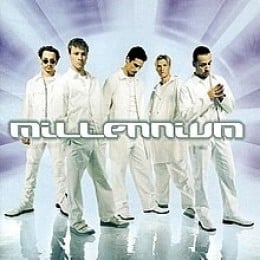What Century Are We In Now? When Does A Century Starts And Ends?
What Century Are We In Now? When Does A Century Starts And Ends?
- andhra historyposted 15 years ago
0
We are now in 21st century. A century refers to 100 years. so in this regard calculating from 1 Ad (1-100, 101-200, 201-300...) till now we get the present century as 21st ( 2000-2100)
The "andhra history" answer is partially correct. The 21st century is not from 2000 to 2100. It's from 2001 until 2100, just as 1st century (Ad) is from 1-100.
- Chasukposted 15 years ago
0
Thank you, Mochileiro. I'm glad to see this answered accurately.
I think most of the confusion stems from the misconception that the new millennium started in 2000, which most of the media sadly encouraged, or at least did not dissuade. They were culpable by omission. :-)
Thanks again! we are in the 21st century. a century starts every hundred years and it ends after those 100 years (e.g. 2100 to 2100). Unlike milleniums, there is no set start . As long as the time period is 100 years, you can start "counting" towards a century (e.g. 2010-2110 or 2006 to 2106).
21st century. We began the 21st century in the year 2001 - 2000 was the last year of the 20th century.
We are in the 21st century, a century begins on the first year of that century eg 2001 not 2000
- wilbury4posted 14 years ago
0
When our year numbers began, the change from BC to AD, I would assume that the first year from the birth of Christ, was 0 (zero), the first year would have been 0 - 1, the first century then being from 0 - 100. Therefore, at the arrival of year 100, 100 complete years had elapsed, following that logic, the 1st of January year 100 would begin the second century. The number of the year is the full years completed. At year 2000, 2000 years were complete, hence the 1st January 2000 began the 21st century, the third millenium.
Compare this to timing an action in seconds, the first second is complete at 1 (0 - 1) the first 100 seconds is complete at 100 (0 - 100) hence 1 mili-second beyond the 100 would be in the second 100.??There is a catch! Though you are right in your logic, the maths of the authorities of those days, up to several centuries AD (CE) was pretty vague about zeroes and negatives, so as far as they were concerned the first year was year 1, what you counted as 0-1. There never was a year 0 because they would have regarded the idea as nonsense. The year before 1 AD they called 1 BC. This was the basis of having each Nth century end with year N00.
Mind you, though that is how things stand, some conventions do insist on the current centuries in the ending in the previous year -- you can't legislate these things for everyone
We are now in 21st century which started from the beginning
of the year 2001 and this century will end at the end of the year 2100. The 1st
century started from the beginning of the year 0001 and ended at the end of the
year 0100. This is only valid... read moreAs stated in other responses, a century is a total of 100 years. Though personally I think there was a year 0, (zero), lol.
First you must ask the question, "What is a year?"
A year is one Earth revolution around the Sun. The Earth rotates on its axis a full 360 degrees, 365.25 times during the course of the year.
Now knowing what constitutes a year, we have to consider mans calendar. Currently, we typically use the Gregorian calendar, but there are many others out there which may not put the date at 2011.
We have decided to agree on a start date and to begin counting from there, for social organization, so we all know when things that are planned for the future will happen, and to keep track of our historical events.
If we were to count years at the estimated age of Earth, instead of only 2011 years back, today would be about:
January 24, 4,540,000,000.
But, if you just want to count from the old 2011 year old mark, it's the 21st Century.We are in the 21 century. A century begins every start of one hundred years. 1900 began the 20th century, 2000 began the 21st century with 2100 beginning the 22Nd century and so forth.
- blake4dposted 14 years ago
0
You mean you really don't know? Wow...well with that in mind - we are in the 3rd century BC. And it started one hundred years ago yesterday, so it is already over. Good luck with winding your watches.
- David99999posted 14 years ago
0
In the common era (according to the Gregorian calender), we are presently in the 21st Century. Since there was no "year zero (0)" on this calender, this century began at 12:01 a.m., on 1 January 2001...and, will end at 12:00 a.m., on 31 December 2100.
Century means 100 years and each starts 1 year after lets say 2000 or 2100 that indicates we started to live in 21 century in 2001;
I never could understand time in terms of years. We are in the year 2012 right? Well say you were born in 300 B.C. What was the date then? I mean it's not like they were count backwards in years like this year is 300 and next year is 299, it wouldn't make sense. I understand counting after A.D. but if 300 year was the date before A.D., what was the actually years in number? Was it 10,000 or 200,000? So the year 2012 might actually be 302,012 or 493432 for all we know. A.D. is just a nice way of keeping track of "modern" time.
we are in the 21st century for sure.
I presume the 1st century was complete on the 31st of december 100.
By this logic ,the 2nd century started on 1st january 101.We are all currently living in the 21st century. From my apparent knowedge, a century starts on the actually numerically 2nd year, instead of the first. 1901, 2001, etc. I sincerely hope that this answers your question.
-Throughout all space & time, Pikachusif
We are currently in the 21st century. The century began in 2000 and will end in 2100.we are in the 21st century for sure.
I presume the 1st century was complete on the 31st of december 100.
By this logic ,the 2nd century started on 1st january 101.This used to confuse me terribly in school. LOL. I couldn't grasp why "19"84 is the 20th century, and not the 19th one.
We are in the 21st century, a century begins on the first year of that century eg 2001 not 2000
The 21st century. It will end on the 31st of December 2100. centuries are every 100 years.
Though, keep in mind that we are only in the 21st century due to recorded history. More accurately, since the time of Jesus. So, the centuries which are included only include AD (After DOB of Jesus). It doesn't included BC (Before Christ).The 21st century is the current century of the Anno Domini era, in accordance with the Gregorian calendar. It began on January 1, 2001 and will end on December 31, 2100. It is the first century of the 3rd millennium.

Today we are in the First Century that follows the Second Millennium.
Related Discussions
- 4
Was The Month of June 2000 In 20th Century or 21st Century?
by ngureco 15 years ago
Was The Month of June 2000 In 20th Century or 21st Century?
- 15
What authors in the 21st century will be known in history as being famous like
by kat11 14 years ago
What authors in the 21st century will be known in history as being famous like that of Mark Twain?For reference like Edger Allan Poe, Mark Twain, Helen Keller, Kipling are just a few that I could think of.
- 8
Will It Continue to Exist in the 21st Century?
by Grace Marguerite Williams 3 years ago
Will the middle class in the United States of America continue to exist, even thrive in the 21st century? Why? Why not? Present your answers?
- 163
American Constitution outdated and irrelevant in the 21st century.
by Sophia Angelique 12 years ago
Here are some quotes from the article below:"“America is in danger, I think, of becoming something of a legal backwater,” Justice Michael Kirby of the High Court of Australia said in a 2001 interview. He said that he looked instead to India, South Africa and New Zealand.""In a...
- 14
Do you think 21st century will be the century of capitalism ?
by icv 8 years ago
Do you think 21st century will be the century of capitalism ?
- 8
Has parenting in the 21st century changed totally from previous generations?
by Kate McBride 10 years ago
Has parenting in the 21st century changed totally from previous generations?One problem with parenting today is that youngsters,especially teenagers expect and sometimes demand what they want instantly. They often can't separate their wants from their needs. How do we overcome this to raise good...





























